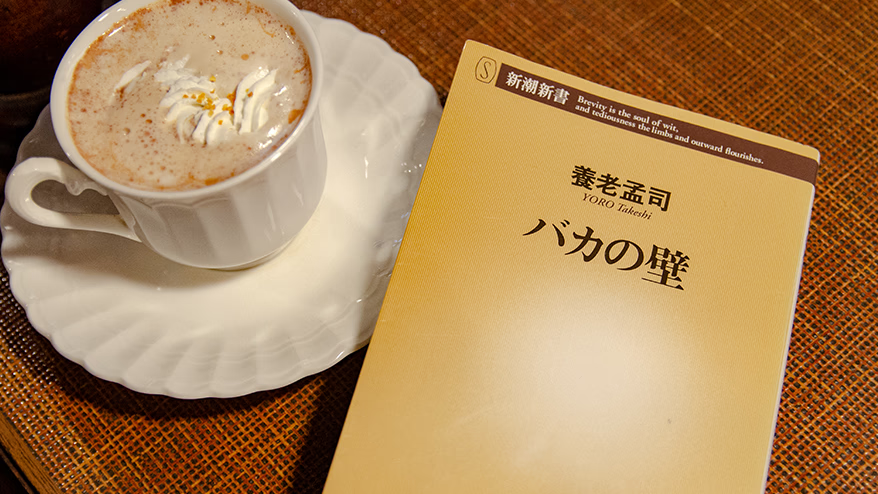9月も後半に差し掛かりました。
暗くなるのも早くなり、仕事を終えて外にでると、すっかり涼しい風。
さつま芋やかぼちゃなど、秋の実りも見かけるようになりましたね。
そんな秋のはじまり、ゆっくり本を読む時間を持つのも良いものです。
今回は、モノサスメンバー2人に、最近読んで印象に残った本を聞いてみました。
一冊目は、読むたびに受け取るものが変化するという、遠くない、近い日本の未来について書かれた本と、ベストセラーになった解剖学者の語り下ろしの本です。
未来に幻滅するのではなく、こうしていこうと思える本
佐々木紀彦『日本 3.0 2020年の人生戦略』
-

-
紹介者
原澤 翔伍 セールス部
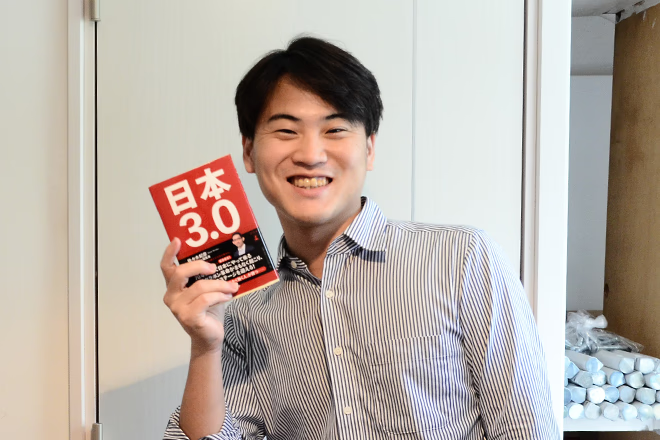
佐々木紀彦(著)『日本3.0 2020年の人生戦略』幻冬舎 (2017/1/25) ( Amazon )
僕が最近読んだのは、「日本 3.0 2020年の人生戦略」です。
この本は、コーディングファクトリー(CF)部の竹田さんにすすめられて知りました。
竹田さんは、いろいろな視点で物事を見ようとするし、新しいことをどんどん取り入れようとする。その人を知るには、その人が読んでいる本を読んだらいい、と聞いたことがあるんですが、竹田さんって、何を考えているのかなと思ってこの本を読むことにしました。
著者の佐々木さんは、Web メディア、NewsPicks の編集長です。
この本には、そんなに遠くない未来、2020年の国家、経済、仕事、教育、リーダー、と五つの軸のこれからについて書かれています。未来のことですが、曖昧な表現ではなく言い切っているので少し予言のようなんです。
現実的なことが書いてあるんですが、その未来に幻滅するのではなく希望というか、こういう状況のなかで、自分はこうしていこう、と思える本でした。
自分の性格上、明るくとらえただけなのかもしれないんですが、
単純に頑張って成果につなげるのではなく、これまでの上の世代とは違ったアイデアを持ってアプローチをしていく世代に自分がいるんだな、と思いました。
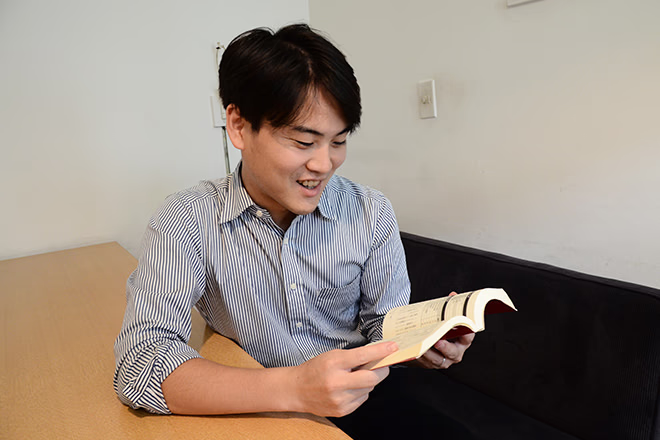
自分自身が、基本的に「置かれている状況を変える」のが好き。
うまくいっていたことも、ある程度固まったら、一回壊して新しく作りたい、という思いがあって。なので、背中を押してもらったような、前向きな気持ちになりました。
これを読んで一番良かったのは、もっと五つの分野のことを知りたい、となったことです。
この本をはじめて読んだのは半年前なんですが、その時と今で、全く見方が違う。
前回読み終わったあとは、「教育」に興味が湧いて、教育に関する本も読みました。
日本の歴史など、教養をもっと身に付けたいとも思うようになってます。
誰にも関係してきそうなのが、AIの話。AIは将棋やチェスなどの限られたフィールドの判断は人間を超えるんですが、いろいろな要素がからむマネージメントの仕事の判断は当面難しいとか。
AIの存在も、はじめに読んだ時は脅威としか思えませんでしたが、この半年で自分の仕事でも新しい技術を使いはじめ、手間だった仕事が簡略されました。その分、本来やりたい仕事ができる時間が増えたことを実感すると、AIともうまく共存していけるんじゃないかと今は思っています。
変化する時代の節目で、希望が感じられる本なのかと思います。
半年後に読んだら30歳なので、また読んでどんなことを感じるのかが楽しみです。
答えはひとつじゃないらしい。だから大丈夫。
養老孟司『バカの壁』
-

-
紹介者
降旗 ゆかり マーケティング部
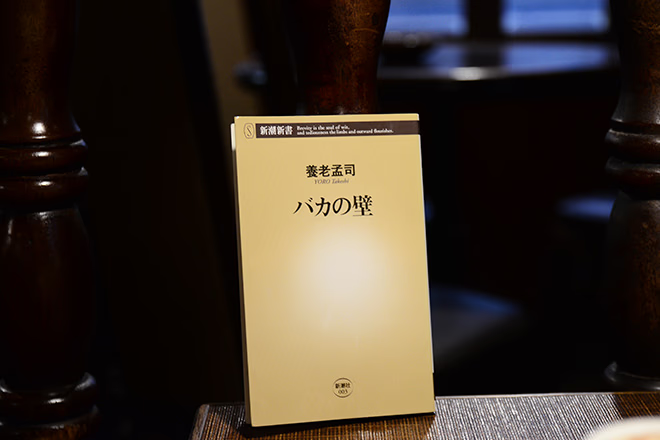
養老孟司(著)『バカの壁 』新潮社 (2003/4/10) ( Amazon )
2003年の年間ベストセラー第一位だった、「バカの壁」です。
たまたま「ネコも、杓子も。」というNHKのドキュメンタリー番組を見て、飼い猫と日向ぼっこする養老先生の姿や語り口に親近感をもっていたとき、これもたまたま書店の古本コーナーで「バカの壁」を見つけたのです。私は迷わずレジに持っていきました。
「バカの壁」は、養老先生が話している内容をまとめた語り下ろしの本。いろいろなテーマについて語られているのですが、それについてあなたはどう思う?と、常に質問されているような、そんな感覚になるのです。たとえば「個性」についてのお話。
個性を発揮しよう、個性を伸ばせ、教育の場でも仕事の場でもよく聞くフレーズです。
しかし、養老先生は「個性」なんてものは、最初から私たちに与えられている、というのです。皮膚ひとつとっても、親子で全然違う。個性なんてそれ以上でも以下でもないのだと。
うーん。「個性」って、外観とか細胞レベルの個体差ということ?そう考えると気が楽になった気もするけど、でも実際のところ個性って何だ・・・という具合。読み進めながらも、考え続けてしまいます。
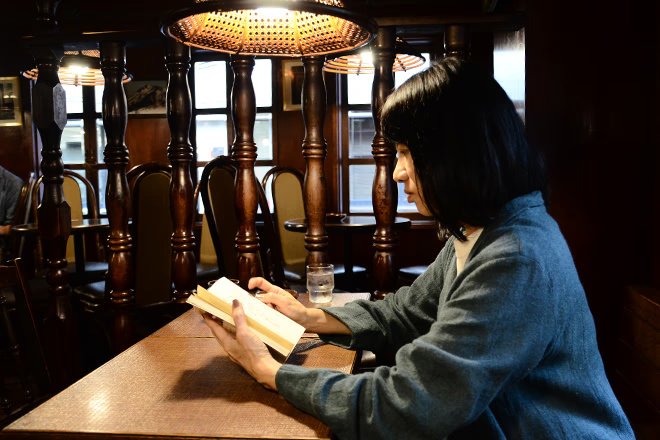
人は「変わる」という話も面白かったです。
人は、自分は変わらず、周りがめまぐるしく変化しているのだと受け止めがちです。ですが、実は、毎日寝て起きたら別人になるくらい変わっているのだ、と養老先生は言います。
脳の働きのおかげで、昨日の自分と今日の自分は連続していると思えるのですが、眠っている間に人は成長もするし、老化もしていく。また、なにかを「知る」ことは「いったん死ぬ」ことぐらいに人を変化させているとも。
脳の仕組みから人生の意味まで、先生の語りは広がり、続きます。だから最後のページまで来ても、ああ、読み終わった。という感覚はありませんでした。むしろこの本の先に、巨大な図書館が広がっているのが見えてしまいました。その図書館に入ってどんな本を探すのかは自分次第なのでしょう。
養老先生が長く生きてきたなかで提示してくれた答えは「こういうことか」といったん受け止めつつ、私自身もそのことについて考えはじめるきっかけになりました。
昨年、80歳になった養老先生がデジタル社会で疲れた人に読んでほしいと「遺書。」という本を書かれたそうです。そちらもぜひ読んでみたいと思っています。
変わっていく社会と変わっていく人。
AIの存在は社会を大きく変えていきそうですが、同じように、人も日々変わっていく。
時に、変化を受け入れ、変わっていくことは勇気が必要なこともあれば、いつの間にか変わっている、ということも。
どちらの変化に対してもヒントを得られそうな、そんな2冊のご紹介でした。
